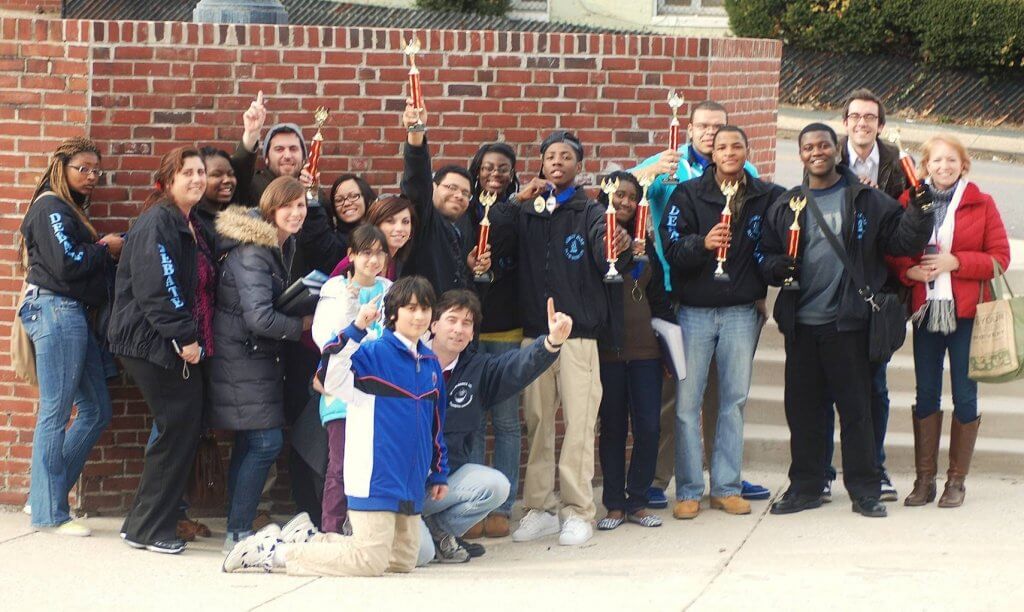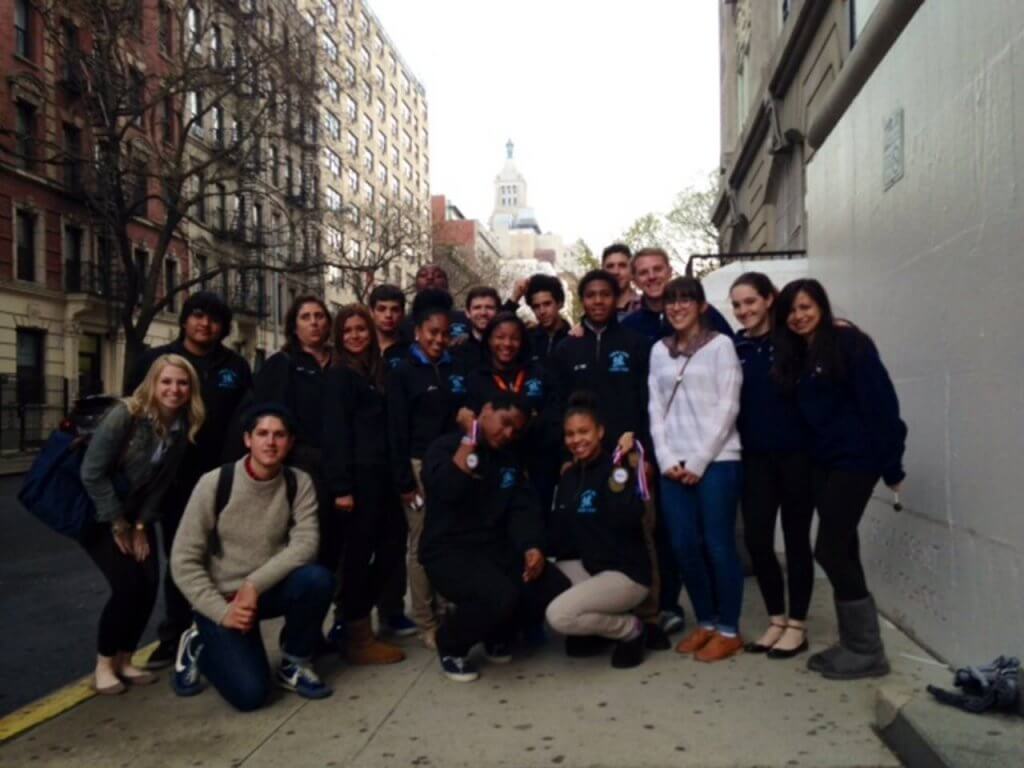Joe Patten, Ph.D., associate professor in the department of Political Science and Sociology, and Steve Chapman, Ph.D., assistant professor in the department of Political Science and Sociology, recently published “Passport to the Future: Boosting Academic Outcomes and Citizenship Through Urban Debate” in Volume 20, Issue 1 of the “Citizenship, Social and Economics Education” journal. Showcasing original research conducted by Patten and Chapman, the article examines the impact of debate participation and mentorship on the educational outcomes of high school graduates in an urban setting.
The study, conducted from 2011 to 2018, examines the change over time in grade point average (GPA) growth, cumulative GPA, and SAT scores of students at Asbury Park High School who participated in an organized debate and a mentorship program with the University, relative to students who did not participate. The study found that debate program participants experienced a 0.81 GPA growth (from 2.5 to 3.31) from ninth grade to twelfth grade, while non-debate graduates exhibited a markedly lower 0.10 GPA growth (from 2.2 to 2.3). Debaters also scored higher on particular sections of the SAT exam and overall SAT scores, indicating the potential efficacy of debate team membership on student outcomes.
While acknowledging that these results do not exist in a vacuum, and the impact of other factors, such as home life or participation in athletics or other extra-curriculars, could have also affected educational outcomes, Patten and Chapman argue that debate imparts important life lessons—resiliency in the face of defeat, among others—that help students to improve performance in the classroom.
“What I remember most about the Monmouth debaters who have coached the Asbury Park High School debaters since 2010 is the powerful impact they’ve had on one another,” Patten reflects. “Debate teaches important critical thinking and research skills, builds community, and empowers people from all political stripes to share ideas on how best to solve problems through public policy. The program is also a reminder of the need to restore a national resolve to instill shared values by mandating civic engagement classes in schools.”
In addition to offering a potential correlation between debate participation and positive educational outcomes, Patten and Chapman also emphasize the role research can play in achieving educational equality. Students at schools such as Asbury Park High School, which is considered “racially segregated” with a 98% non-white population, can experience inherent disadvantages in the academic playing field as they are often from low-income families who are more likely to experience unique “personal, social, and economic hardships.” Patten and Chapman argue that participation in debate, shown through their research to boost forms of academic measurement like GPA and SAT scores, can offer underprivileged students an opportunity to level the playing field.
“I think the paper has importance for a couple reasons,” says Chapman, who credits this project to Patten’s numerous years of dedication to the mentorship program. “Much of my other work focuses on large-scale policy decisions where findings rarely make an impact in the mainstream. This type of research, however, has real potential to influence stakeholders in education to shift resources towards programs like the Monmouth/Asbury mentorship program. The more we can encourage an evidence-based approach to policy, be it educational or otherwise, the better.”
Chapman added, “I think it’s vital to understand that programs like these are not a magic pill; there are numerous factors that lead to positive educational outcomes. Still, debate mentorships can be an impactful piece of the patchwork of necessary policies that provide equity in educational opportunities.”



